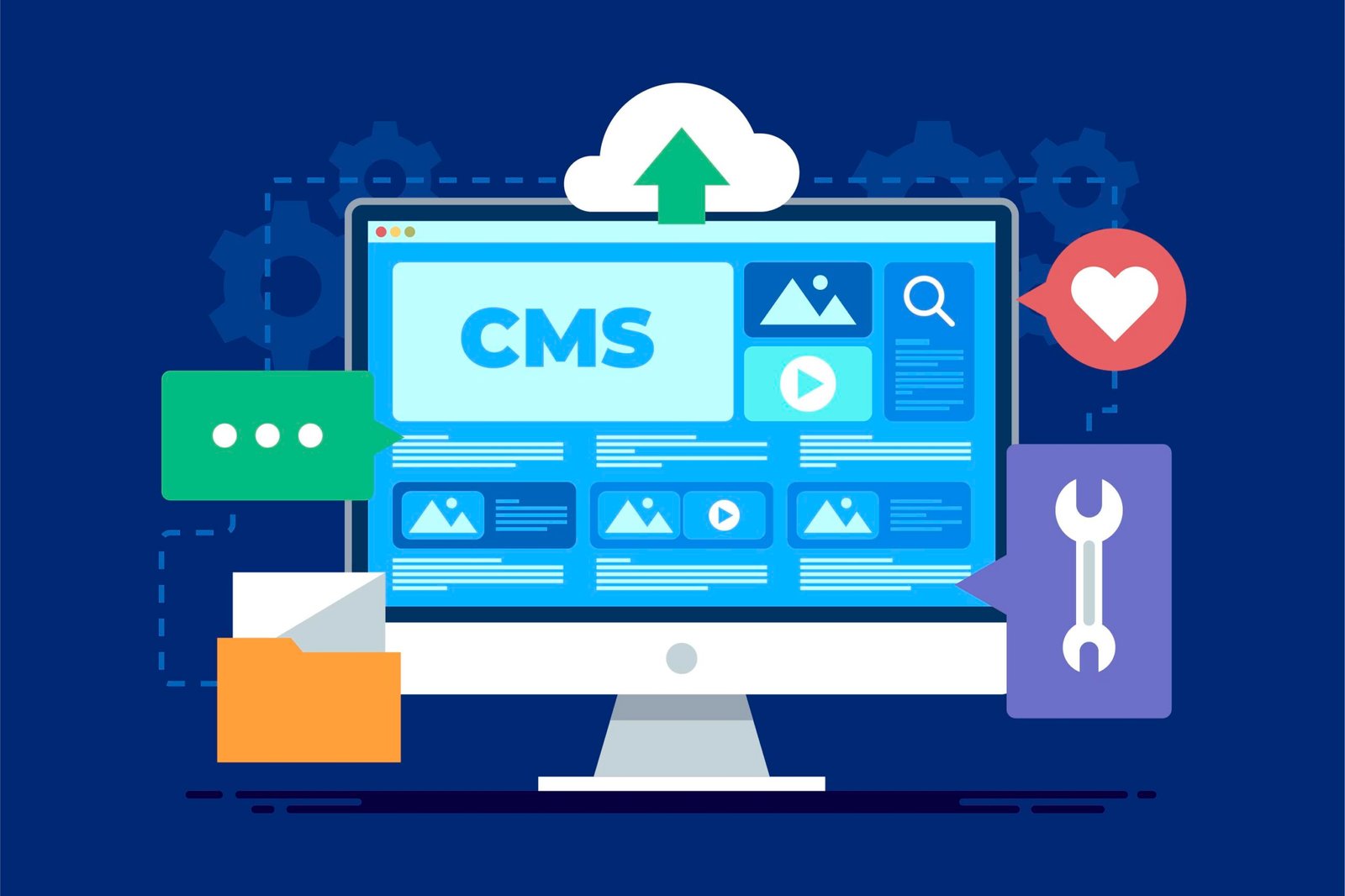To explore the strategies and techniques of social selling on LinkedIn, offering insights into how professionals can build relationships, establish authority, and drive sales through this powerful platform.
Stay Ahead of the Curve with Cutting-Edge Content: AI, Tech & CS
Stay Ahead of the Curve with Cutting-Edge Content:
AI, Tech & CS Insights: Fuel your curiosity with insightful blogs exploring the latest advancements in AI, the ever-evolving tech world, and in-depth analyses of various computer science topics. Keep your tech knowledge on point!
- Artificial Intelligence SpecialistsAI and machine learning specialists are at the forefront of innovation, designing systems that can learn and adapt autonomously. From developing intelligent chatbots to optimizing business processes, these experts use advanced algorithms to drive solutions in industries like healthcare, finance, and retail.
- Generative AIIt involves the use of software robots or bots to automate repetitive, rule-based tasks.
- Machine Learning A subset of AI that focuses on developing algorithms and models.
Artificial Intelligence (AI) and Machine Learning Specialists
As industries increasingly adopt AI technologies, the demand for AI and machine learning specialists is soaring. These professionals design algorithms that allow machines to learn and make predictions, automate processes, and analyze large sets of data with minimal human intervention. AI is transforming sectors such as healthcare, finance, retail, and manufacturing, making it one of the fastest-growing career fields.
Key Skills:
- Proficiency in programming languages like Python, R, and Java.
- Strong understanding of machine learning frameworks (TensorFlow, PyTorch).
- Expertise in deep learning, neural networks, and reinforcement learning.
- Knowledge of natural language processing (NLP) and computer vision.
Career Outlook:
By 2025, AI will be ubiquitous in business operations, and the demand for specialists in AI and machine learning is expected to grow rapidly. From AI-driven customer service systems to autonomous vehicles, the integration of AI across industries will lead to millions of new job opportunities worldwide.
Generative AI: Transforming Workflows with Intelligent Automation
Generative AI is at the forefront of automation, using advanced software bots to handle repetitive, rule-based tasks with speed and accuracy. By integrating human-like intelligence, these bots are revolutionizing the way we work, making processes smarter and more efficient.
Key Benefits of Generative AI:
- Effortless Task Automation: Eliminate repetitive tasks and let AI-powered bots do the heavy lifting.
- Smart Bots, Smarter Workflows: Software bots that adapt and improve with data, bringing intelligence to everyday processes.
- Boosted Productivity: Free up valuable time and resources by automating routine tasks, letting you focus on what truly matters.
- Seamless Integration: Tailored solutions that work across industries, from customer support to content generation and beyond.
- Innovation Unleashed: Unlock new possibilities with AI-powered creativity and automation that push the boundaries of traditional workflows.
Machine Learning: Powering AI with Smarter Algorithms
Machine Learning (ML) is a core subset of Artificial Intelligence (AI) that revolves around creating advanced algorithms and models. These models learn from data, identify patterns, and make intelligent decisions, all without explicit programming. ML drives innovation across industries by enhancing predictive capabilities and automating complex problem-solving.
Why Machine Learning is Essential:
- Self-Learning Algorithms: ML models continuously improve by learning from data, becoming more accurate and efficient over time.
- Data-Driven Decisions: Machine Learning leverages vast amounts of data to uncover trends and make smart, data-informed predictions.
- Automation with Intelligence: Automates complex tasks such as fraud detection, recommendation systems, and customer behavior analysis.
- Versatile Applications: Used across various fields, including healthcare, finance, marketing, and robotics, to solve real-world challenges.
- Improvement Over Time: As models are exposed to more data, they refine their performance, leading to better outcomes and smarter solutions.
- All
- Artificial Intelligence
- Career and Roadmaps
- Computer Science
- Computer Science Advanced
- Futures Tech
- Insight blogs
- Programming
- PROJECTS TIPS
- Python
- Social Media
- Soft skills
- Web Innovators Hackathon
- Website Development
This article aims to provide day traders with an in-depth guide on harnessing the power of LinkedIn to forge connections with influential industry figures, amplify market insights, and gain a competitive edge in the dynamic world of trading. Introduction In the digital age, savvy day traders are increasingly turning to platforms like LinkedIn to navigate the complexities of the trading landscape. Imagine tapping into a network of industry...
Edit Content Click on the Edit Content button to edit/add the content. Artificial intelligence continues to revolutionize the way we work, think, and create. In 2025, a variety of powerful AI tools are available for free, ready to assist in tasks ranging from writing and designing to video editing and coding. This guide not only introduces you to the top free AI tools of 2025 but also provides...
Edit Content Click on the Edit Content button to edit/add the content. The journey from exploring Artificial Intelligence (AI) as a beginner to mastering its complexities can seem daunting. However, with Microsoft’s robust suite of AI tools and resources, this progression is more accessible and streamlined than ever before. In this blog, we’ll explore how Microsoft’s AI ecosystem empowers individuals and businesses to excel in the rapidly evolving...
Edit Content Click on the Edit Content button to edit/add the content. Introduction In recent years, artificial intelligence (AI) has become a game-changer in the tech industry, especially in software development. According to a study by O’Reilly, 48% of organizations have adopted AI in their development processes, transforming the way software is designed, tested, and deployed. This revolution is enabling developers to push the boundaries of what was...
This image is used in blog belongs to FREEPIK website. To examine the evolving concept of work-life balance in the modern world, discussing whether it is an achievable goal or a myth, and exploring its significance for today’s workforce. Introduction Imagine a world where the average employee spends over 50 hours a week working, leaving little time for personal life. Shockingly, this is a reality for many. A...
Algorithms Artificial Intelligence Artificial Intelligence and Machine Learning Basics of Computer Science Best AI Tools Blogging Career Roadmap ChatGPT Coding Skills Computer Science Computer Science Concepts Computer Science for Beginners Content Creation Data Science Data Structures Free Online Courses hackathon HR technology Insight blogs Introduction to Computer Science Machine Learning Python Programming Recruitment automation SEO Best Practices Social Media Software Engineering Web Innovators Hackathon website
Recent Posts
-
100 Essential Python Questions & Answers: Your Ultimate Beginner’s Guide to Mastering Python10 February 2025/0 Comments
-
Effective Project Execution: From Inception to Completion9 September 2024/
-
How to Create a Project Website on WordPress Without Coding9 September 2024/






